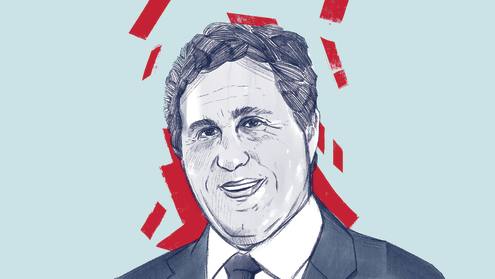The reputational damage to the investment banking industry in the immediate aftermath of the financial crisis was one of the most significant pressure points for the recruitment and retention of top talent. The economic destruction that was blamed on the 'financial supermarkets' of the 1990s and early 2000s was not the only factor that dissuaded young people from going into finance. It was also the complete abandonment of creativity and culture by these same firms that became a significant deterrent for fresh, young, top-level talent looking for interesting and engaging work. Indeed, it was for these latter reasons that I chose to leave UBS and start Moelis & Company in 2007.
Ten years on, the industry – and the financial conglomerates in particular – continues to grapple with these issues. But it is also clearer today that the financial crisis became an inflection point for the recruitment and retention of talent for a more nuanced reason than we once thought. Specifically, the timing of the crisis could not have been worse for building a pipeline of top-performing talent.
Tectonic tech shift
At the same time that the banking industry came under intense scrutiny, and subsequently an overly stringent regulatory regime, a new industry was budding literally in the palms of our hands. It was during the summer of 2007, while Moelis & Company was opening its doors, that the very first iPhone was released, and with it a technological revolution was born. Fast and pervasive mobile technology, social media and apps brought us the sharing economy, connected homes, the Internet of Things, and so on.
These huge technological shifts were also happening as millennials were ageing into the workforce at an accelerated rate. By 2015 they surpassed Baby Boomers and Generation Xers to become the largest generation in the labour force. The financial crisis forced many millennials to re-aim their career trajectory or establish a new path entirely.
It is not surprising that when faced with the option to enter either a highly regulated, overly bureaucratic and reputationally sullied industry or else 'change the world' at a fast-growing, unregulated tech company they would choose the latter. It was a choice between the burdensome feeling of working under a regulatory microscope and the entrepreneurial feeling of developing technology that couldn’t be seen under that microscope.
But the factors that caused the pendulum to swing in an unfavourable direction for banking over the past 10 years, I believe, are the same reasons to be very optimistic about the industry’s ability to attract, retain and develop the brightest minds in the years to come. New independent investment banks, fintech start-ups and alternative asset managers are bringing innovation, creativity and entrepreneurial spirit back to banking.
Driving deals across all industries
The industry as a whole is embracing technology in a way that gives new recruits an opportunity to work on highly technical projects for some of the largest corporates and multi-national clients. In the advisory business, technology (and its impact on our clients) is driving record deal making and we are actively recruiting young bankers who want to apply their technological knowledge across all industries, rather than pigeonhole it into one.
In contrast, as the investment banking industry adapts and continues to offer more opportunities for digitally minded millennials to make an impact, technology companies are becoming the subject of greater scrutiny. Like banks during the financial crisis, recent revelations about the size and influence of social media companies have drawn the ire of governments around the world.
In the aftermath of the crisis, in an effort to prevent a future collapse of the financial system, regulators responded by labelling banks and other firms as 'systemically important financial institutions' (SIFIs). But given the amount of sensitive data that technology companies hold, the number of users on their platforms and the ever-growing threat of cyber attacks, it is only a matter of time before the tech industry faces a similar regulatory remedy. Sooner or later, in addition to SIFIs, regulators may decide that we need to identify SITIs: systemically important technological institutions. Indeed, the outage of, or attack on, a major technology company today would have a much greater impact than the collapse of one of the existing SIFIs.
If we accept the increased regulatory oversight of technology companies as inevitable, it is easy to envision a shift of talent back towards banking, particularly as investment banks adapt to millennial lifestyles and their vision of work culture. Since the crisis, the pace of adapting the banking environment for millennials has been under way, but it needs to accelerate if we are want to capture the unique skills that millennials bring to the workforce.
The technological revolution that millennials were born into has created new behaviours, new ways of communicating and new ways of building and maintaining relationships – and I couldn’t be more optimistic about this generation’s use of technology and social media. They are more focused on personal connection, albeit digitally, than any generation before them.
Blaming the new generation
Yet it seems like every hour a new story publishes with a headline about millennials 'killing' something – home buying, hotels, cars and so on. Yes, changing habits and behaviours can be disruptive, but it is amazing how we have fallen for this short-sighted view every time something new comes around.
Like millennials today, I remember my generation being criticised for the new technology of the day. Watching television was going to be the end of playing outside. Pagers were too over-reaching. Mobile phones were an invasion of privacy. E-mail was going to destroy the way we communicate forever. Nowadays, Instagram, Snapchat, Facebook, Twitter and their ilk are the threat du jour to human relationships as we know them.
But as the CEO of an investment banking business that is built on deep relationships, I am encouraged by this generation’s embrace of social media to form intense relationships with people in their network. Yes, they have shied away from trivial and superficial relationships – no longer speaking with customer service representatives over the phone, making travel and dinner arrangements without ever speaking to a human, and buying products without stepping into a store or getting assistance from an associate – but the relationships they hold on to are much stronger.
Throughout my career, I have always believed I held deep relationships because I was staying connected between two landline telephones. But today’s generation are so continuously, visually, verbally and contextually connected that they have formed deeper, longer lasting relationships than anyone before them. Facetime, video streaming, Snapchat, the Cloud and so on have all made it easier than ever to share rich content, fresh ideas, old memories and new ways of saying 'this reminds me of you'. Keeping up with one another is easier than ever, and each new class of talent joining our firm does it better than the last.
New behaviours, new value
Rather than criticise and generalise a whole generation for something we do not know or do not understand, I prefer to look for the tangible benefits. For a people-based business, it is imperative that we understand the ways in which new recruits behave and interact and create an environment where those behaviours can add value.
As employers of millennials, especially amid intense competition for talent, investment banks need to provide early and frequent opportunities for junior talent to use these relationship-building skills and allow them to engage in meaningful client discussions. Giving the next generation the chance to forge strong bonds with clients early in their careers will allow them to nurture the client relationship over the long term and build trust with their contemporaries within the client’s organisation. What you end up with is a client for life and a relationship that is currently impossible to replicate with an algorithm.
For the past decade, investment banks have had to compete for talent while their businesses sputtered. While big banks were paying the financial and reputational price for past transgressions, tech companies were attracting billions of dollars in public and private investment, offering tremendous perks, and promoting a 'do-good' mission.
But that gap continues to narrow and if the finance industry wants it to close even further, it is incumbent on today’s leaders to understand what drives tomorrow’s CEOs and to create an environment where they can succeed. Likewise, the next generation of great bankers will need to embrace the future possibilities of technology while understanding the historical lessons of finance.
Ken Moelis is the founder, chairman and CEO of investment bank Moelis & Company.







